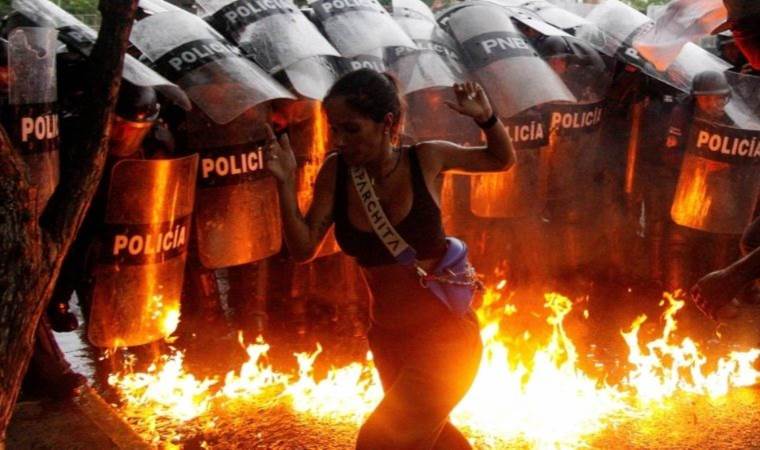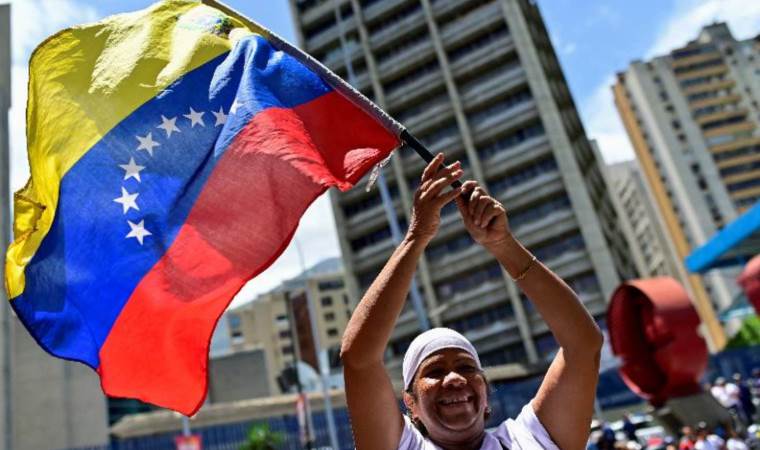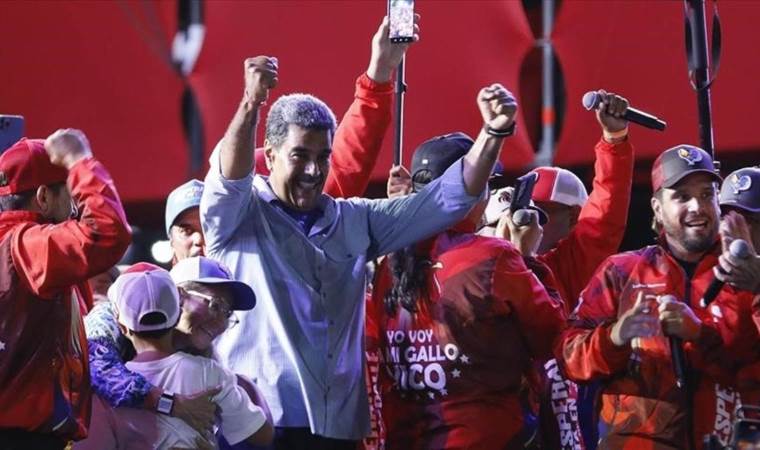Statues toppled, police stations burned: unrest escalates in Venezuela
In Venezuela, protests have continued to grow following President Nicolas Maduro's controversial election victory. Security forces intervened with long-barreled weapons, while pro-government militants took to the streets, gangs attacked police stations, and statues were toppled.
Violent protests have erupted in many cities across Venezuela in response to the disputed elections. The demonstrations, centered in the capital Caracas, have spread to nearby cities.
During the protests, demonstrators clashed with police. Security forces responded with assault weapons. Protesters destroyed statues symbolizing the Bolivarian revolution, burned pictures of President Nicolas Maduro, who allegedly won the much critized election, and attacked police stations.
Reports indicate that 15 protesters and 2 police officers were killed during the unrest. More than 100 protesters were detained. Allegedly, one of the civilians killed was a 15-year-old child. There are claims that the actual number of deaths is much higher. Clashes continue in the neighborhoods of Caracas.
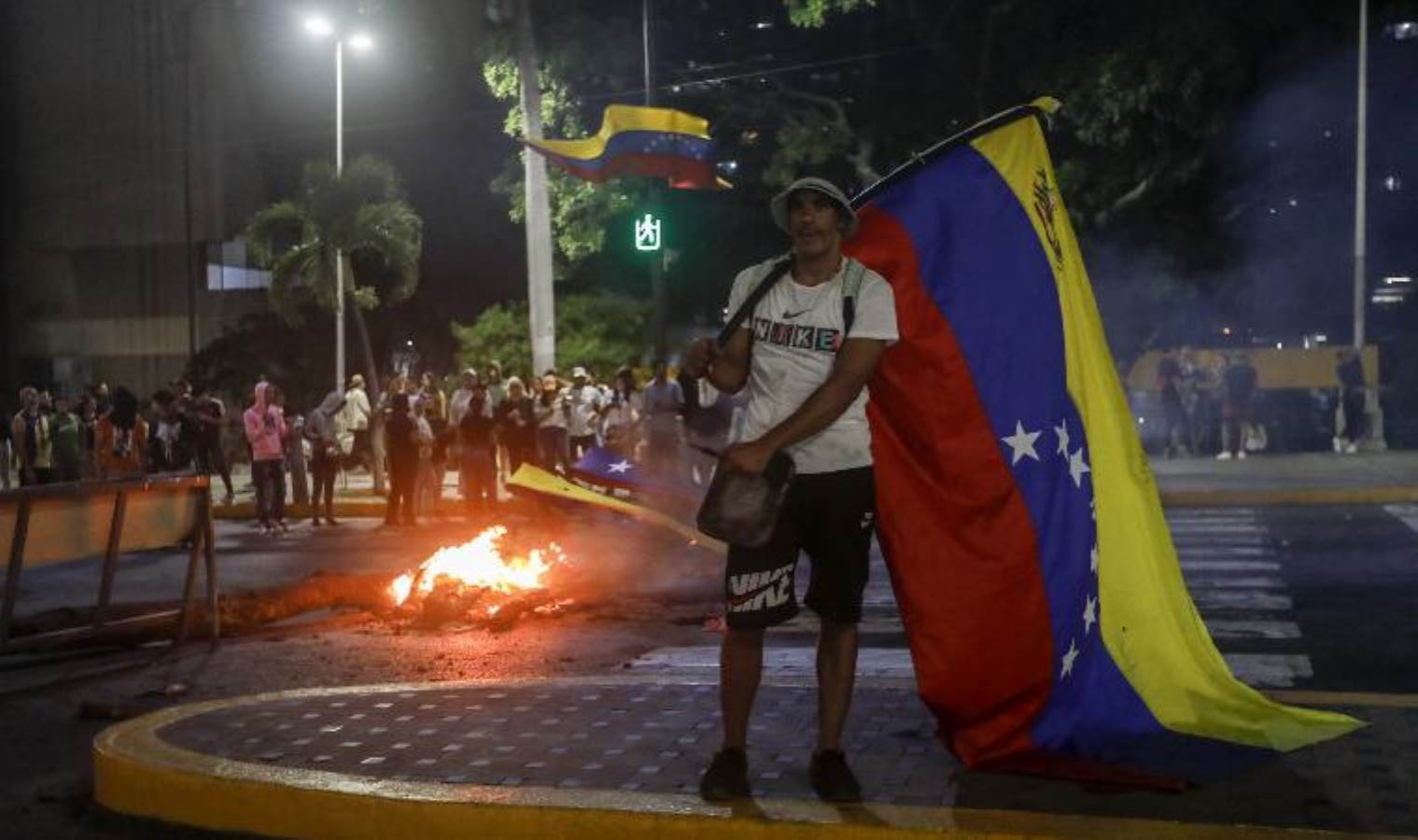
PARAMILITARY GROUPS CLASH
In addition to police intervention, pro-government paramilitary group Colectivos attacked protesters with firearms.
In a video released by Colectivos militants, masked individuals displayed their weapons, declaring their intent to "protect the revolution and the government." Armed protesters and militants clashed in the streets.
Shortly after Colectivos' actions, "mega gang" Tren Del Llanos of Venezuela warned security forces and state-affiliated paramilitary groups to remain calm.
Following the release of a warning video, the gang joined the protests. Gang members burned Maduro posters in front of a police station in Guarico, threatening the officers inside.
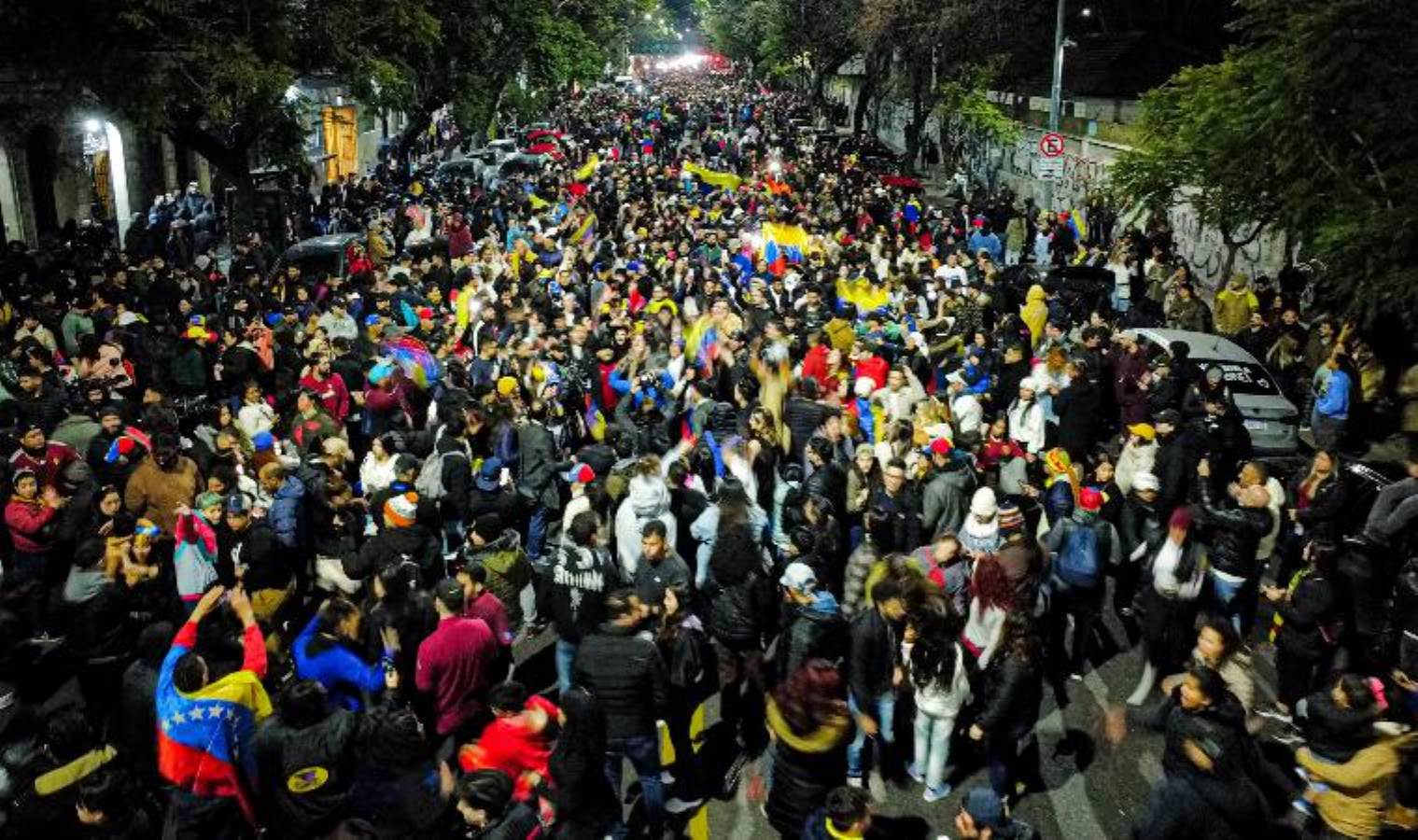
STATUES TOPPLED, POLICE STATIONS BURNED
Protesters attacked symbols of the revolution and police stations. In Caracas and surrounding cities, many statues were toppled using ropes and chisels. In Caracas, people dragged and stepped on a toppled statue of Nicolas Maduro.
In Caracas, Maturin, Catia, and Cumaná, police stations were set on fire. Protesters chased police officers through the streets, assaulting those they caught. At least two officers were lynched.
In all cities where protests occurred, demonstrators set fire to billboards rented by Maduro during the election period. Pictures of Maduro were removed from state offices and burned in the streets. Anti-Maduro slogans echoed through the streets.
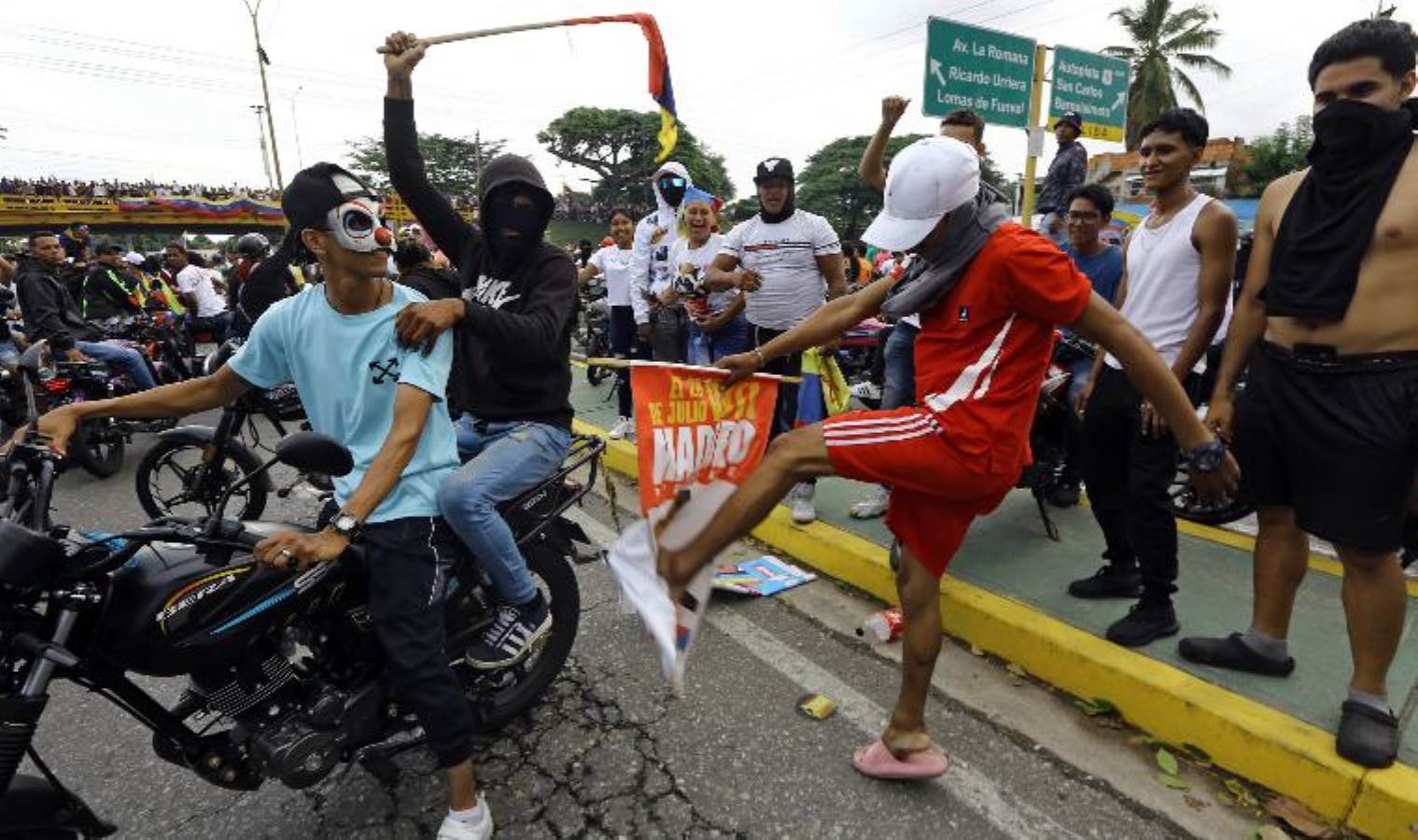
INTERNATIONAL REACTIONS
Venezuelan Defense Minister Vladimir Padrino Lopez announced on social media that 23 soldiers were injured during the events.
Lopez stated that some soldiers were wounded by gunfire, adding, "We will not allow the country to return to the darkness of 2014, 2017, and 2019. Make no mistake."
Meanwhile, Venezuelan Attorney General Tarek William Saab reported significant damage to public property during the events and assured that the responsible parties would be held accountable.
Following the elections, the opposition declared that the National Electoral Council's (CNE) data was inaccurate and the results were fraudulent.
Neighboring countries quickly responded to the situation in Venezuela. The governments of Peru, Colombia, Uruguay, and Guatemala issued official statements claiming the election results were unfair.
U.S. Secretary of State Antony Blinken emphasized the need for transparent elections. Argentine President Javier Milei stated that the Venezuelan Armed Forces should stage a coup to protect democracy.
Most Read News
-
 Israel arrests over 100 Palestinians in occupied West Ba
Israel arrests over 100 Palestinians in occupied West Ba
-
 Trump says China 'panicked' with retaliatory tariff deci
Trump says China 'panicked' with retaliatory tariff deci
-
 Germany criticizes Israel’s airstrikes on Syrian territo
Germany criticizes Israel’s airstrikes on Syrian territo
-
 Myanmar identifies 180,000 Rohingya in Bangladesh as 'el
Myanmar identifies 180,000 Rohingya in Bangladesh as 'el
-
 US not interested in 'negotiations about negotiations' o
US not interested in 'negotiations about negotiations' o
-
 Search and rescue efforts continue 7 days after deadly M
Search and rescue efforts continue 7 days after deadly M
-
 Gaza death toll passes 50,600 as Israeli army kills 86 m
Gaza death toll passes 50,600 as Israeli army kills 86 m
-
 China hits back at US with 34% tariffs, lawsuit in escal
China hits back at US with 34% tariffs, lawsuit in escal
